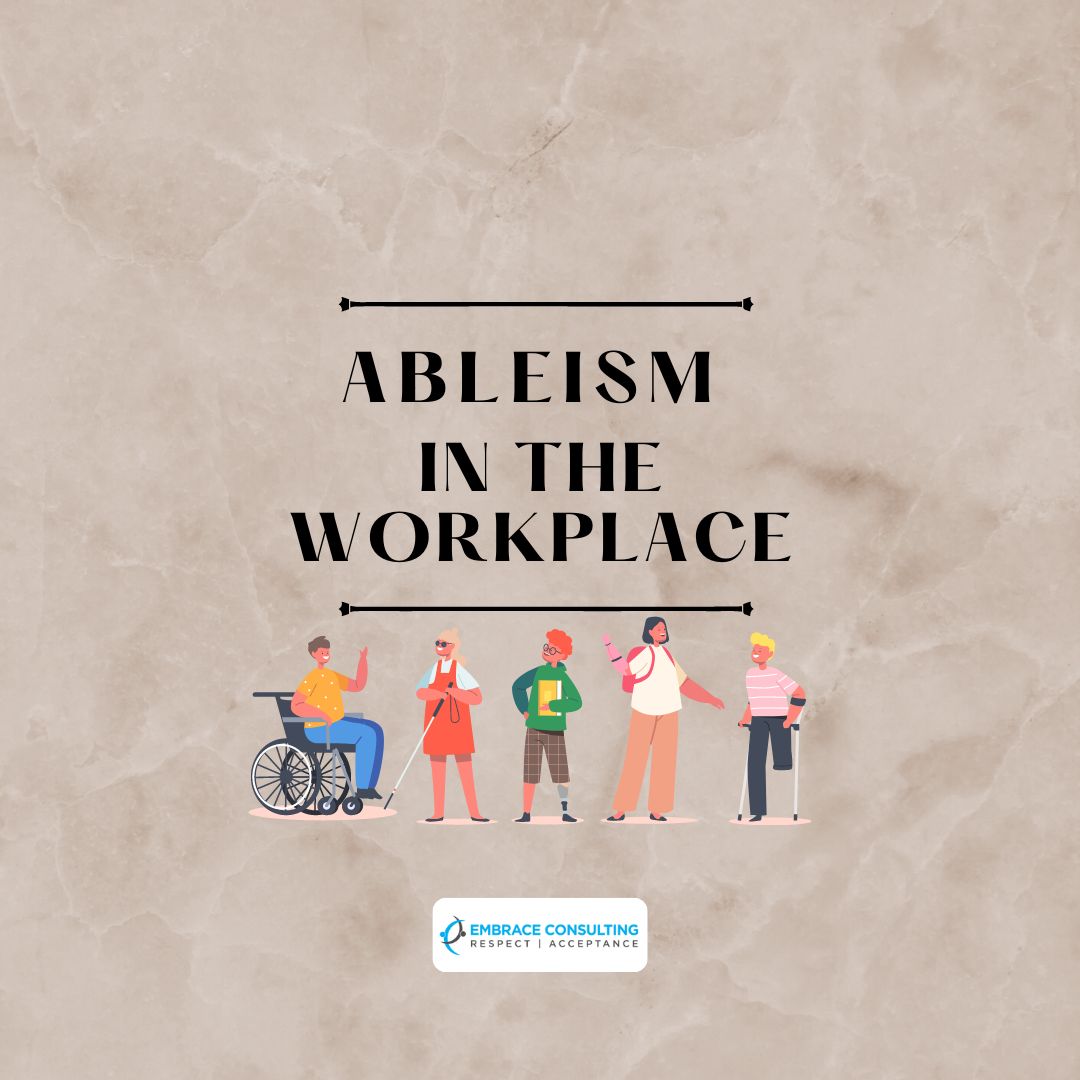Ableism is characterized as prejudice or discrimination towards persons with disabilities that is founded on the idea that abilities that are “typical” are superior. It basically consists of a set of attitudes and ideas about the types of individuals who are “normal” and those who aren’t. It is identical to sexism, racism, and ageism, ableism is problematic and a widespread issue.
Even if no one is openly using obvious ableist remarks, a workplace where no one in a position of power is actually paying attention to very basic means of access and support, long term and short term, for employees or for customers or clients, is operating in a really ableist way. Ableism in the workplace manifests itself in more ways than just the words we use.
Additionally, it manifests in corporate policies and regular actions that support or even normalize ableist ideas. Due to the widespread belief that people without disabilities can tell who is actually impaired and what needs people with disabilities require, most people without disabilities anticipate that some people with disabilities may encounter ignorance. However, people with disabilities receive good care. Certain measures can demonstrate the opposite or even reinforce a discriminating climate, even at organizations that sincerely work to develop an inclusive culture.
Some examples of how Ableism looks in workspaces are as follows:
- It is an ableist policy when there is no paid family or medical leave policy in place at your place of employment.
- You’re likely working in a highly ableist environment if HR consistently rejects and disregards concerns at your place of employment.
- Asking for fundamental needs to be addressed, such as asking for individuals to refrain from eating nuts in the lunchroom or asking if it’s okay if they wear eyeglasses because they get migraines.
- Distributing a lesser burden to employees with impairments than to those without disabilities.
- Assisting those with impairments even when they don’t request it or require it.
- Using voice or posture to address disabled employees in the same way that one would with children.
- Expressions of sympathy for disabled coworkers.
- Using derogatory language regarding disabilities.
These are all important if you work in an environment where you don’t feel safe.
A common workplace unhelpful strategy that has been used in companies often these days is Performative allyship. It is increasingly common, with many people claiming to assist marginalized groups. Performative allyship has an unsettling impact that hinders advancement and has the unfavorable result of stifling initiatives to promote genuinely inclusive work settings. What can be done is speaking out when something bad happens is one of the most effective things you can do. It’s as simple as saying, “That’s not okay”, or “That’s not funny”. Accordingly, you can respond fast when the need arises, and prepare your go-to ally phrase in advance. Having the courage to step in is what makes someone a true ally.
Therefore, the following suggestions are provided for dealing with someone who has more authority than you or when you simply don’t feel safe being assertive at the time:
- Bystander Intervention Skill– Deflect and divert is one strategy for doing that. Basically, you just want to remove that person as quickly as you can from that toxic setting. You could ask your friend to come to help you, for instance, apologize for interrupting and take them away from the unsafe environment.
- Disable Automatic Defences– It takes a lot of effort to resist the impulse to act automatically defensively. It is acceptable to remark, “OK, I’m not sure if I’m in a position to hear all of this right now. I need a moment to think about this”. However, it is our duty to accept responsibility for any harm we cause to others.
- Remove Harmful policies– Effectively reducing the negative effects of present policies while they are still in place. Being productive is valued. It is an asset. And we’ll continue to live in an ableist society as long as we continue to praise productivity.
Employers must acknowledge the accomplishments that people with disabilities can make at work and foster a workplace culture that values their contributions. Equal treatment of employees with impairments and those without is necessary. This necessitates educating employers and staff on the different sorts of disabilities and the tools needed by those with disabilities to perform their jobs. When coworkers commit unintentionally ableist errors, they should acknowledge them, apologize, and endeavor to improve moving forward. Workplaces can gain from the contributions of all of their employees in this way.






